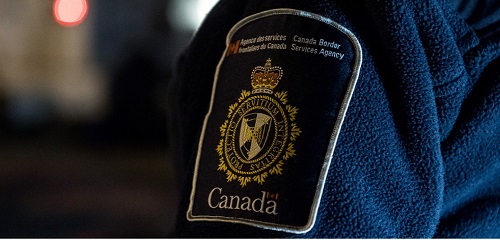CBSA towards strike: border disruption expected during summer
TORONTO – Unions representing thousands of “border” workers (i.e. from the Canada Border Services Agency – CBSA) expect disruption at airports and land crossings this summer, after the majority of the agency’s members voted in favor of the strike: to be precise, 96% of the members of the Customs and Immigration Union (CIU) and the Public Service Alliance of Canada (PSAC) voted “yes”.
The approximately 9,000 affected workers include those at airports, land entry points, sea and commercial ports, as well as law enforcement officers, intelligence officers, investigators, commercial officers and non-uniformed headquarters staff.
CIU president Mark Weber said – as reported by the CBC – that the demands are, among others, wages more in line with law enforcement agencies such as the RCMP, access to teleworking for members who can work from home and better retirement options. “One of the other big sticking points is also ’25 and out’ …almost all other law enforcement and public safety personnel have the option to retire after 25 years without penalty” he said. “This is something we don’t currently have”.
Weber said employees are also concerned about the growing use of artificial intelligence. “Our members find it worrying, also from a national security perspective, that the CBSA seems intent on setting up some sort of self-service, automated kiosks, almost expecting traffickers to declare themselves that they are contraband: it is a system that will not work never” he said.
The strike could begin next month, but negotiations are ongoing: “As the summer travel season approaches, we hope that Justin Trudeau’s federal government will give these negotiations a top priority. The window to avert a strike is closing closing quickly” said PSAC President Chris Aylward.
The federal government, for its part, has said it believes there is still time to reach an agreement.
Meanwhile, a cry of alarm was recently launched by the CBSA regarding the functionality of the agency itself. Better training and intelligence tools are needed to help the Canadian Border Agency’s intelligence program meet several challenges, from firearms smuggling to human trafficking, as an assessment report (recently published by the CBSA) finds. The assessment, conducted between March 2021 and March 2022, found that access to training is insufficient and, furthermore, the technological capacity necessary “for efficient and effective operations” is lacking.
Put more simply, both the human and technological resources of the CBSA are “dated” out of step with the times. And that’s a big problem, given that the agency is one of the bodies responsible for the national security of Canada.
(Photo from the CBSA Facebook page)



